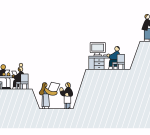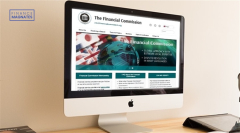Employment and Consumer Sentiment Crucial for Consumption Boost
Policy measures to lower social funding costs typically boost household income and spending. However, China’s real estate market, labor market conditions, and the US-China trade war have fueled uncertainties, impacting consumer demand.
China’s unemployment rate fell from 5.1% in April to 5% in May. However, youth unemployment (16-24, excluding students) paints a different picture. In May, the youth unemployment rate fell from 15.8% in April to 14.9%, remaining well above 14.2% in May 2024. This summer, a record 12.22 million students are expected to graduate, potentially impacting the labor market.
Considering another potential spike in youth unemployment, mirroring a surge during the pandemic, consumer sentiment could deteriorate further in the coming months. Weakening consumer sentiment could test the effectiveness of Beijing’s efforts to boost consumption.
Targeting youth unemployment remains a key focal point, with China’s government previously introducing subsidies for firms to hire fresh graduates and unemployed youth.
While Tuesday’s guidelines are significant, increasing domestic competition and price wars are another hurdle that companies face in expanding workforces. The US-China trade war has fueled domestic competition, underscoring the importance of a trade deal.
US-China Trade War Truce: Is China Breaking the Agreement?
In June, China and the US held talks in London, agreeing to stick to the terms of the 90-day truce. However, China would need to significantly increase export licenses





